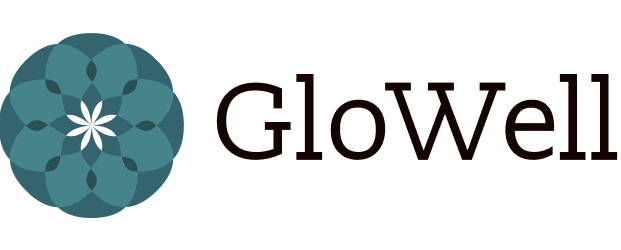Recently, my young son had an experience that left me contemplating grief.
We have this wooden bowl. It was gifted to me by a friend from fire, Gabe, 10 years ago. A birch wooden bowl from Alaska. I love that bowl. It held a space on my altar for years, holding sacred objects. Last year, we began to use it for my son, Leonidas. He would often wake up hungry at night. So, we began placing snacks for him to eat, by his bed, in the wooden bowl. Often, it is a banana. Other times, it may be pieces of a granola bar, dried figs, a pear. No matter what, there is a food gift in that wooden bowl, waiting for him to find in the middle of the night. We have taken this bowl with us everywhere since we began using it for Leonidas. It’s been in tents, Airbnbs, cabins, hotels & RVs! It’s always there for Leonidas.
This past week, Leo accidentally knocked the bowl off the table, spilling its contents on the tile floor. I picked up the bowl, cleaned up the mess & went on making dinner. A few minutes later, I walked over to the bowl and noticed that a chip cracked off the edge, about 2 inches long. My heart sank. I felt sad to see this. I felt disappointed. I took a deep breath in an attempt to accept the bowl’s fate.
“Oh no Leo… look what happened.”
I showed Leo the bowl. He looked at it, and in the next moment, he began to sob. Devastated. A look of anguish on his face. He wailed, crying big crocodile tears. I tenderly walked over to him. His little 2.5-year-old body was standing on the stool, hunched over in his sobbing, head held low, holding on to the counter in front of him. *He had been “cutting” cauliflower for dinner.* I put my arm around him.
“I am so sorry Leonidas. You are so sad your bowl is broken.”
“YEA!!!” he wailed.
“Your special bowl. *Pause* You know it is still your special bowl, don’t you?”
“YEA!!!” he cried.
“This is just so sad. I am sad it broke too. You just keep on crying and get it out. Okay?”
“YEA!!!” he sobbed.
I sat with Leonidas for about 15 minutes, holding space for him while he cried. My heart felt so tender, yet so full. I felt deep empathy for my son. I felt his grief. I witnessed and allowed his grief. I knew this was an opportunity to gift him something so big and so deep, as to permit him to feel his feelings, to help name them & allow him to express them. To let him know it is OKAY to feel what he was feeling. There is nothing wrong here. If you wanna be sad, be sad, my dear son.
The Courage of Feeling Your Grief
This experience deeply resonated within my own being. I know grief. At least, parts of it. I just lost a female firefighting friend, Allie, to suicide this past summer. My body can remember that feeling I had the day I found out. I wanted to fall to the floor and crumble into a ball. I wanted to wail. I did twice that day, both times, waking my son up from sleep. I noticed that as soon as he woke up, I interrupted that grieving process. I stopped allowing myself to fully feel and fully express what I was feeling simply because my son was awake.
How often do we do this?
We try to suppress uncomfortable feelings when they arise.
To interrupt.
To distract.
To avoid.
To resist.
To reason & logic away.
Hearing that annoying inner voice to say, “you don’t deserve to grieve” or “don’t be weak” or “men don’t cry” or “positive vibes only” or “be strong”… What does that even mean? To be strong? Does it mean to build up a wall, not allow ourselves to feel or show emotions, especially “weak” ones? To pull up those bootstraps and trudge forward?
That is not how I see strong.
When I think of strong, I think of courage – doing something, even though you are scared, while staying true to yourself. What truly underlines the essence of courage is vulnerability. Allowing yourself to be honest, authentic, scared, uncomfortable, for the greater good. It is the vehicle for creativity, satisfaction, and more fulfilling life. To me, that is true strength. Being willing to face the fears & discomforts, even though they are scary.
Being honest.
In integrity.
Picking Up the Pieces
After about 15 minutes of crying, Leo was slowly winding down, though had not completely stopped his grieving process. I got out two peanut butter cups for us. I presented him this little “present” wrapped in gold paper, with dark chocolate and peanut butter hidden inside.
“Here, Leo,” I said. “If we are going to be sad, we can at least have some chocolate.”
He opened up his “present” and took a bite. He chewed a couple of times, wailed out a couple of times. Then he would eat another bite, and let out another couple more cries and tears. Soon, it seemed that his process had passed. We finished our chocolate and continued on with dinner.
We ended up gluing that piece back onto the bowl. After some sanding, you could hardly tell where it cracked. There could have been a very different outcome to this situation. When I noticed the crack, I could have set it aside, without bringing attention to it.
After bedtime, I could have glued that piece back on and acted like nothing ever happened. I could have done that. In what could look like protecting him, or sparing him (& me) pain, I could have hidden the truth from him. But, is that really sparing pain, or is it taking away an opportunity to simply experience & learn? Pain is an entity or interpretation we identify within an experience.
If I had chosen to hide the truth, I also would have had to suppress my own emotions & reactions to the broken bowl. Part of me showing him the broken bowl was sharing with him how I was feeling, in that moment. And, together, we could grieve. I could have presented the chocolate much sooner in his crying, as a distractor. I was conscious about waiting to bring something like that out too soon, not wanting to interrupt his beautiful process.
Vulnerability, Courage, and Strength from Grief
When I reflect on Leonidas’ response to his chipped bowl, I sit in awe of such a raw expression of grief, untouched *yet* by the conditions & expectations of society. This is what grieving can look like if we allow it. There are cultures around the world that practice and allow this unabashed grieving response. Where it is acceptable & even expected to openly grieve in wails & bellows. There is often a culturally accepted amount of time reserved for the grieving process following a loss. Often, accompanied by practical care that is provided by their communities – meals, childcare, chores, etc.
In this country, that is not as consistent nor culturally & economically accepted when it comes to grief. Why must we have to use “sick leave” for something that is completely healthy & human? Why are people prescribed anti-depressants and anti-anxiety medications SO soon, following a loss? Where is the other medicine? Why do people so quickly need to reassure those who have lost that “things will get better,” skipping over what is going on right now? Why do people hope for those in grief to “move on”? What does that even mean?
The number one most stressful event in life is the death of a loved one. Number two is divorce, and number three is moving. All are losses. Deaths in their own right. Sometimes, symptoms of grief may be staring you right in the face, and you may not even recognize it as grief, or one of the emotional cycles within the grieving process – sadness, depression, anger, denial, bargaining, acceptance. These are not linear nor chronological. I reflect on the major moves I’ve had in my life. Historically, I’ve had a tendency to refuse to slow down to even notice what emotions are trickling up within me. I have found myself too scared to face them, and have made myself busy with other things.
These difficult feelings – they will, and must be processed at some point, in some fashion, if there is going to be health & freedom.
The body has memory. It does this, what I see, as a loving thing, to take that emotion that is too painful or unbearable to process, and tuck it away. The thing is, it will remain tucked away unless that person is ready to excavate and retrieve it, in some fashion. It may not look like what the initial response could have looked like. Suppressed emotions hidden within the body have the potential to harm, often coming out in physical & mental manifestations that may not seem connected at all, at least at first glance. Unexpressed grief can also lead people to do devastating things – shut out ALL emotions, connections & the world; get stuck in one of the grief-related emotions long-term – suicidal, angry, addicted; relying on scapegoats to funnel the unprocessed emotions into; become physically ill. There are many ways to “untuck” unprocessed emotions & experiences. All ways ultimately require two things – realizing that you do need help and then seeking out the help you need.
This is the initiation.
It requires vulnerability and courage.
True strength.
Dr. Sarah Sue Myers is a naturopathic doctor, healer, coach, teacher, writer, herbalist, and founder of Journey Home Healing. She honors meaningful connections, authenticity, therapeutic relationship, patient empowerment, creating a safe space, and cultivating a healing presence for those whom she works with. Connect with Dr. Sarah Sue at www.journeyhomehealing.com














Join the GloWell Community on Social!
Don't risk missing a single thing. Follow us on social and become part of the GloWell community.